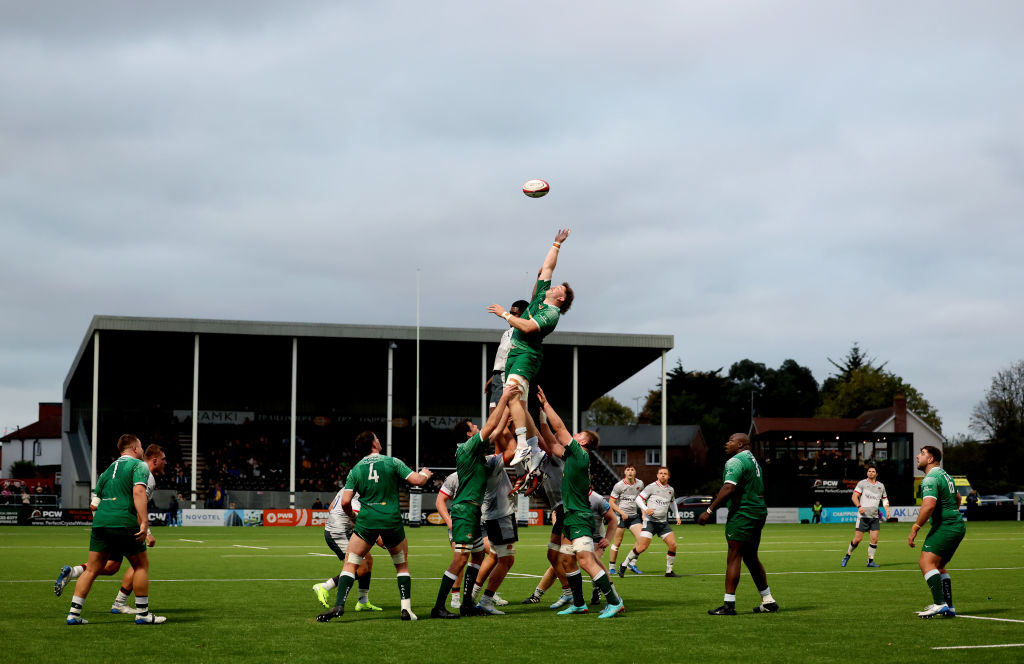 There’s an old saying which seems to be more and more fashionable in our game and that is, ‘money talks’. As Europe hogs the headlines, more of the millionaire owners are using the Press to push the case for a change in Europe.
There’s an old saying which seems to be more and more fashionable in our game and that is, ‘money talks’. As Europe hogs the headlines, more of the millionaire owners are using the Press to push the case for a change in Europe.
Article after article has been drip-fed in a succession of stories about the injustice of a system that allows some to gain automatic inclusion and allows them to rest players, to the disadvantage of those that must compete to play.
Gloucester chairman Ryan Walkinshaw, says: “It’s not truly elite, as you have clubs coming in having been formed that year who get automatic qualification, like Zebra, and others who have invested huge sums of money and add huge value to the competition being ignored through the qualification process which is not meritocratic. It’s just embarrassing. It puts the competition into a frame which is not truly the elite competition it is meant to be.”
Walkinshaw’s comment appears to show a different agenda to that proffered as the reason for change.
The idea that automatic qualification should be given to those that invest ‘huge sums of money’ or that because of that investment they add ‘huge value’ to the competition shows a distinct lack of understanding as to the ideals of European competitions or how a meritocracy works.
The money that owners invest in their Premiership or Top 14 clubs is based on the belief that it will help achieve success for the team on the field.
Those teams that succeed and finish in the top half of their leagues gain qualification to the Heineken Cup. But no matter how much money is invested, if a team fail and finish near the bottom of the table they quite rightly can’t qualify.
So unless there is an unspoken plan to increase the number of Premiership and Top 14 clubs taking part in the Heineken, that situation would remain the same no matter how teams are selected from the Rabo Pro12.
As for adding value, with a European Cup the only value that can be added comes from the number of countries taking part. If the number of countries taking part are reduced, the less ‘European’ the Cup becomes – no matter how good the remaining teams are.
Another complaint about the Rabo is that they rest their best players so as to have a better chance in Europe and although that may be true, it is also a fact that the Premiership, and particularly the Top 14 clubs ‘rotate’ players, choosing when they play. French clubs are notorious for picking a second string when playing away.
In fact, part of the PRL agreement with the RFU, restricts the number of games that EPS players (the Premiership stars) can play each season but allows each club to choose what games they miss.
What has to be recognised is that European competition is fundamental to the health of the Six Nations and the development of the wider European game where teams like Scotland, Italy and those in the second tier can test and develop their young players against the elite of the club game throughout Europe.
Unfortunately, those countries, along with Wales and Ireland, lack the playing numbers to have a professional club league and so must condense their talents into a small number of elite teams from where their international squads are drawn.
It could be argued that because each Rabo Pro12 country has chosen their elite players and created elite teams, they have circumvented the need for European qualification based on merit, as the teams contain the best players that country has to offer.
France and England, on the other hand, have at least ten times the number of players and have their elite players divided between 14 and 12 teams respectively and so need a meritocracy to sort ‘the wheat from the chaff’ each season.
It could be said that the elite nature of the English and French game has also been accepted and catered for by the fact that they each have more teams in both of the European competitions than any of the other nations.
What puzzles me is there has been no mention at all in any of the Press releases regarding the Amlin Challenge Cup, which is the premier player development tool for all competing nations.
This begs the question: Will the English and the French be pulling out of this as well and if so, what competition will take its place?
The European game is as much about improving the standard of rugby across the whole of Europe as it is about raising revenue.
To improve and stay strong at international level it is important that the nations with a smaller playing base are able to take part in the elite club game and by that I don’t mean just Italy, Spain, Romania and Portugal. Wales, Ireland and Scotland need Europe to maintain the standard of their international team.
If the Top 14 and the Premiership are able to cherry pick who and when they play, it will have a negative impact on the smaller countries’ (and probably the Lions‘) ability to compete on the international stage.
What has to be remembered is that rugby is still growing, but is still a small game in the fledgling years of professionalism and it seems our clubs are using football as their role model – a role model that has not helped their international game.

5 Comments
You must be logged in to post a comment Login
Leave a Reply
Cancel reply
Leave a Reply
You must be logged in to post a comment.

English Championship
What the new Championship format could mean for English rugby



























Will Deacon, Brussels
27 September 2013 at 12:30 PM
They don’t give a hoot about the international level of the game as they are obviously striving to supercede it in the pecking order.
Doesn’t bode well for McCafferty and Co. The short-term thinking of attempting to entrust private money with the role of custodian of the game of rugby union would only result in failure. The game needs a future that is not based on the whims of self-serving money like the Wrays, Walkinshaws and Craigs who use clubs. Think the likes of Alan Stanford. Think IPL. That’s wh wants to top off international rugby and ‘own’ (as already stated) the sport.
Niall Gallaghet
27 September 2013 at 9:02 PM
Well said Jeff. An articulate piece that supports the Rugby side of the argument. I agree totally..
poesiamore
30 September 2013 at 12:58 PM
A great article, congratulations.
I would also add that each of the four Celtic Nations – Ireland, Italy, Scotland and Wales, has confirmed that they are open to have for the Pro12 championship, and the access to the European cups, a more meritocratic and competitive system than the current one; hence this cannot still be portrayed as the major issue of division by the English and French clubs.
Additionally, one could argue that the future of success is to have more nations included in the European Cups and not less, hence more nations represented a part from the “6 nations”.
flanker
4 October 2013 at 11:12 PM
I guess there is also racism at play too.. the uppity Irish stealing the cup organised in Dublin 5 times in 7 seasons in spite of not having the money to compete with Rugby’s sugar daddies must really rankle…
Pingback: ทางเข้า LSM99